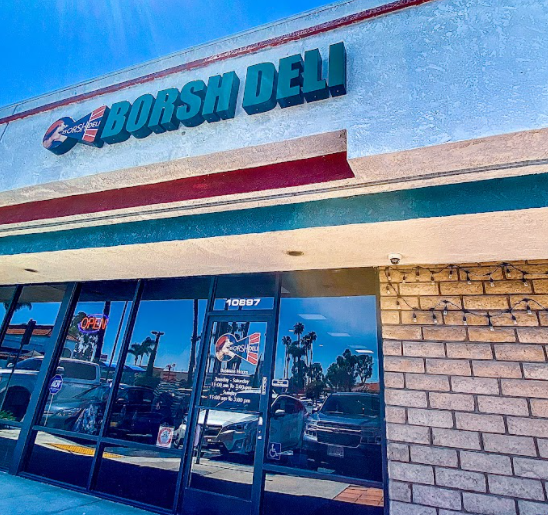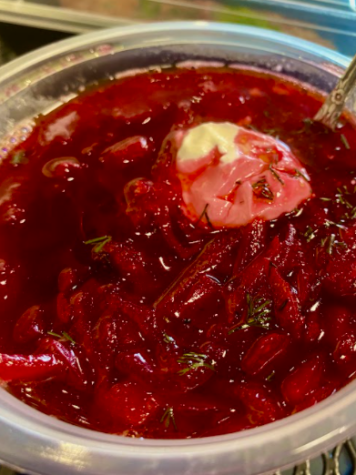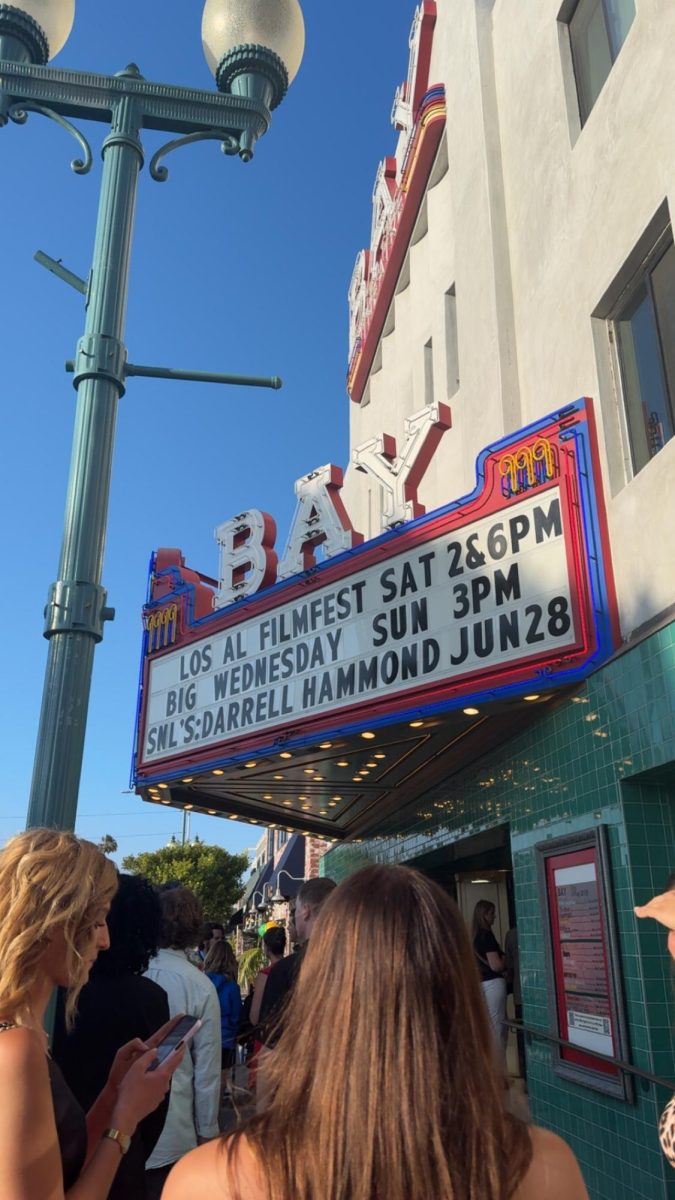Borsch Deli: Los Al’s taste of Eastern Europe
An in depth guide to Los Al’s local and authentic family-owned deli

Located right across from our school on Los Alamitos BLVD, Borsh Deli is a convenient location for our students
April 28, 2023
LOS ALAMITOS, CA– Los Alamitos and it’s surrounding So Cal areas have many restaurants that serve great food to our community. Though chain restaurants and corporations are familiar among our demographic, it is always beneficial to support small mom-and-pop shops, especially if they are owned by immigrants. Right across from Los Alamitos High School, is a deli with authentic and convenient cuisine that is very accessible to the students of our school. If anyone is looking for a new spot to eat, or eager to have new experiences in tasting a different culture, then Borsch Deli is a perfect place.
Founded by George and Karen Haijan, the immigrant couple created their small family-owned business at 1087, Los Alamitos BLVD. Since Mrs. Haijan is an immigrant from the former Soviet Union (Eastern Europe), she and her family decided to keep their culture alive by cooking and selling their traditional foods. Located across from our school, this makes visiting this unique experience easy for the students and teachers who go to our school. That way, all of Los Al could enjoy their authentic delicacies without traveling too far.
“Karen emigrated with her physician parents from the Soviet Union, in 1973, but she never forgot the delicious meals cooked by her grandmother and their housekeeper,” said Mr. Haijan about their inspiration for the business.

Traditional Eastern European cuisine, as well as the Baltic and Central Europe, is the spotlight of this deli since it is the culture the family comes from. The namesake dish of the restaurant is borsh, also known as borscht, which is a savory soup with a beat and beef broth. It is a major staple among the Slavic ethnic group that most Eastern European countries are a part of, and is even a celebrated Ukrainian symbol.
Many students take pastries to school in the morning as an on-the-go breakfast. Though many of those may be from chain restaurants like Starbucks, this family-operated deli also has authentic pastries that are great for taking to school in the morning. Piroshki are warm and freshly baked dough buns popular across Slavic countries such as Russia, Poland, and Ukraine. They are prepared daily from scratch using traditional methods from their home country and come in different savory fillings like cheese, sausage, potatoes, mushrooms, and many others. Since they are hand-held, these filling meals are convenient as on-the-go eats for students to take to school.

In addition to Piroshki, there are other quick bites that could be eaten as both morning breakfast or after-school snacks. Besides other bread pockets, Dolma is small stuffed grape leaves popular in countries like Romania, Greece, and Armenia. Since it is Mediterranean and Middle Eastern in origin, they have a refreshing taste of herbs with olive oil, and even fit the Muslim Halal standard. Eastern Europe is a diverse place, so some of its cuisines may also be a familiar sight if someone belongs to another culture. These include Pelmeni, which are Russian dumplings similar to Italian gnocchi or Chinese wontons.
Although the business has a plethora of meat dishes, Borsh Deli has a wide range of authentic regional salads for those who are vegetarian, vegan, or looking for healthy options. This includes tabouleh, which is Mediterranean like the dolmas, and the traditional Russian potato salad Stalichini. Some other salads include Shuba, an authentic Russian salad made of herring fish, and a variety of delicious dressings. This is perfect if anyone is pescatarian, or simply in the mood for fresh seafood.
In order to see if a cultural business is truly authentic to the culture it caters to, it is best to ask the people of that culture what they think of the place. Local food bloggers, and people around So Cal who are of Eastern European culture, left great reviews on Borsh Deli.
“[It is] more than just a store to buy products and prepared foods, the place seems alive with friendliness when you approach it during busier meal times,” said local food blogger Jared Cohee about the deli.
“This deli simply makes me happy!” said food guide Lina Lumme about her familiarity with the culture’s cuisine. I can find traditional food and snacks I loved as a child.”
The Borsh Deli is more than just a great place to grab a quick and convenient meal. If any student or teacher at Los Al is eager to support a small family-owned business, while also exploring a culture that is new to them, this place should be at the top of their list. Supporting these smaller immigrant-owned businesses is more important to our community than we think. Our country was built by immigrants, and if more people continue to only buy products from large chain corporations, the mom-and-pop shops that represent the backbone of our nation will die out.
These ethnic restaurants, particularly those created by immigrants, also help to preserve their foreign cultures by sharing their traditional cuisine. The diversity brought about by the presence of many cultures is what distinguishes mankind, and if lack of support leads them to go away, so will our sense of particular identities. Students and staff can help keep cultures alive while also ensuring the architects of our diverse country stay in business by continuing to support local businesses like Borsch Deli.





